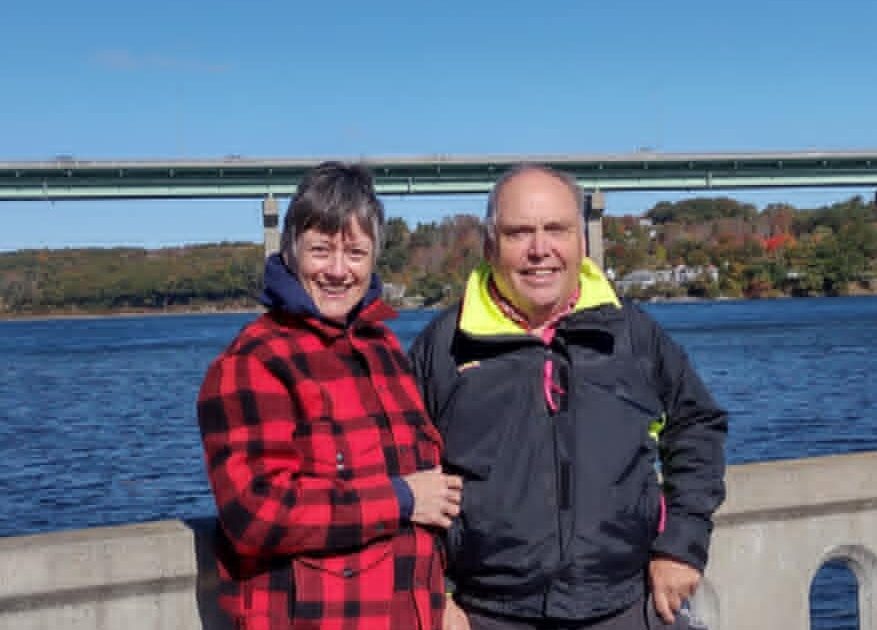Marshall Rolerson and his wife, Jennifer, love their little home in the woods of Maine. They live 1,000 feet off a rural route just outside Belfast.
It was when he was in his 40s and working as a welder for Fisher Engineering that they purchased the piece of land their house sits on. In his time off from work, he cut down trees and dragged them out. He built forms and poured concrete by hand, digging the foundation with a shovel. Using their own milled boards, Marshall put up walls, floors and roof, and they moved into the shell of an unfinished home. It took the best part of ten years to fully complete the project.
Fast-forward two decades and life looks a little different now. It was five years ago now that Marshall set out early to go hiking with a friend. He was on his motor scooter and crashed, suffering a concussion and five broken ribs. At the hospital, doctors found cancer in his liver and declared it stage four neuroendocrine type.
With no specialists in Maine for this rare form of cancer, he was referred to Dana-Farber Cancer Institute in Boston, where the doctor developed a treatment plan for him. Marshall checks in a few times a year in Boston, a four-hour drive from their home and gets monthly shots at the hospital in Belfast, designed to keep the cancer as slow-moving as possible.
“We have learned to live with cancer,” Jennifer tells us. “Cancer loves stress. We work to keep our stress levels down, but I tell you, when you get it that your roof is in danger, it’s hard to stay calm.”
The morning after a historic storm that rocked the area, they found roof shingles on the ground near their house and panic set in. The writing was on the wall…they would need a new roof, and Marshall could no longer do it himself. Not now. They sought an estimate, and the considerable cost shocked the couple now living on fixed social security.It was a scary situation. Jennifer called around, looking to find the lowest price possible. Of course, Marshall’s first thought was to figure out if he could fix it, all while going through his cancer treatments. “My energy level is not what it used to be,” Marshall tells us. “I’m just more fearful, and I have plenty going on in my head without worrying about the roof. It just seemed insurmountable. It was a challenge to roof it when I was 45. It seemed impossible now.”
But Marshall’s social worker had an idea. She reached out to the Joe Andruzzi Foundation (JAF), and the Foundation was able to provide a grant through their Extraordinary Needs Fund. Extraordinary Needs is a one-time grant for project-based needs that present a barrier to treatment for a patient, such as a required home improvement project that was a high-priority necessity.
When she heard about the fund, Jennifer couldn’t believe it. “No way. Is our roof really going to be replaced by these people? I had been desperately trying to figure out how we’re going to do it…We were so grateful to learn about it.”
The grant helped eliminate a substantial financial burden for the family, making it affordable within their means. More crucially, it relieved the stress of trying to figure out how they were going to get their roof fixed, something they couldn’t ignore.
“The stress factor is huge. The quality of life, we don’t know how long we’re going to have Marshall…But I can’t tell you how nice it is to know we have a solid roof over our heads. We don’t even have to think about it…And that’s meaningful.”
Both literally and figuratively, that roof symbolizes stability and security for the remainder of Marshall’s journey, one less critical burden to take with him to Boston for his ongoing assessments.
There are so many issues that can arise during a cancer journey. But thanks to an Extraordinary Needs Grant from JAF, that roof is one less worry for Marshall and Jennifer.


